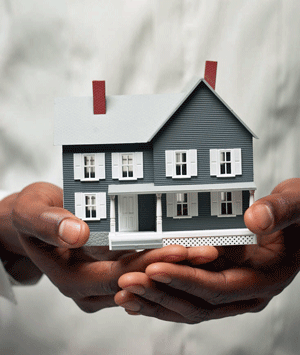As the housing downturn has shown, homeownership is about more than buying a home – you have to make sure you can keep the home over the long term. If you’re thinking about buying a home, these five steps can help ensure you get the right house for you and the affordable financing that helps make homeownership a long-term success:
1. Get Educated. A little mortgage know-how goes a long way toward ensuring you get an affordable mortgage
Before you hire an agent or find a lender, get educated on the loan process and key factors that make a loan affordable. You’ll want to know about loan types – fixed-rate mortgages, adjustable-rate mortgages, FHA and VA loans – and the full range of line items that contribute to the total cost of securing the loan, including discount points, appraisals, and real estate agent commissions.
If you would like more in-depth information, the Department of Housing and Urban Development (HUD) can put you in touch with the nearest housing counseling professional in your area. Visit www.HUD.gov for more information. You can also check with local government, neighborhood associations and neighborhood bank branch offices for information sessions on home buying as well as homebuyer-education programs.
2. Get Your Finances in Order. Given today’s stronger lending guidelines, it’s more important than ever to get your finances in order
First, get a copy of your credit report, which usually includes your credit score. If your credit score is low (anything below 620), take the time to improve it. If you find errors on the report, take the time to correct them. This may put your home buying plans on hold (creditors typically look for a two-year history of consistent, on-time bill payment to establish good credit), but it could result in a better loan and more affordable rates.
3. Establish a Budget. Before you start searching for your home, make sure you know how much home you can afford
Lenders will evaluate all your debts and take into account your full financial situation when qualifying you for a mortgage. A key factor is how much income you bring in versus how much you will pay out each month. Here’s a good guideline to check where you are:
- Your housing expense (the mortgage payments on the house you are buying) should generally not exceed 28 to 33 percent of your total monthly gross income.
- All revolving debt (including car payments, credit cards payments, and your mortgage payment) should not exceed 36 to 40 percent of your total monthly gross income.
It’s always helpful to create a monthly budget, itemizing all your recurring expenses, including estimated maintenance costs, taxes, utility bills, and condo or homeowners’ association dues. Then, test your budget. If you can pay all these debts and continue to add to savings, you may be ready to buy a home. If not, you may have to revise your plans.
4. Start Saving. Having savings in reserve helps ensure you can afford the upfront costs of homeownership
Upfront costs of homeownership include:
- Down Payment – Five to twenty percent of the purchase price. Keep in mind, a lower down payment means you’ll have to qualify for a higher loan amount and pay for mortgage insurance – adding to your monthly mortgage payment.
- Deposit – Two percent of the purchase price, typically. Sometimes called earnest money, a deposit shows the seller you’re serious about buying the home. If your offer is accepted, the deposit or earnest money will be applied towards the down payment. If your offer is rejected, the down payment will be returned to you.
- Closing Costs – Three to five percent of the purchase price, on average. These costs include all fees required to execute the sale, including, title insurance, appraisals, and points.
5. Get Pre-Approved. In today’s competitive market, home buyers should get pre-approved for a mortgage before they begin their house hunt
To be pre-approved for a loan, your lender will gather information about your job, assets, income, and debts and then determine how much financing you’re qualified to receive. If you are pre-approved, you will receive a pre-approval letter from the lender. When you’re ready to make an offer on a home, this pre-approval letter will tell the seller you’re a serious and qualified buyer. It will also give you an edge over competing buyers who are not pre-approved.
Keep in mind, pre-qualification doesn’t mean you have an approved loan. You’ll still need to apply for a loan if your offer is accepted.
Source: Fannie Mae
Need help in finding or selling your new home?
Call John O’Dell
Real Estate Broker
General Contractor
530-263-1091 begin_of_the_skype_highlighting 530-263-1091 end_of_the_skype_highlighting
